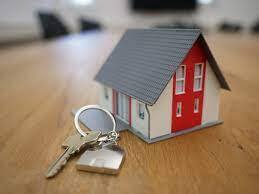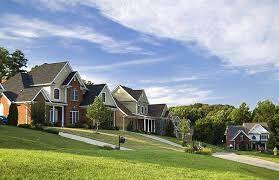MyWorldGo
What Research Says About Lease My House
Blog Information
- Posted By : Cw sparks sparks
- Posted On : Jun 03, 2023
- Views : 193
- Category : General
- Description : Thirdly, you may also be liable for any accidents or injuries that occur on the property while it is leased. This could include slips, trips and falls, or even more serious accidents. If the tenant is injured, they could sue you for damages, and you could be left with a hefty bill.
- Location : Canada's Wonderland, Canada's Wonderland Drive, Vaughan, ON, Canada
Overview
- The risks of leasing your house propertyWhen you lease your house property, you are Lease my house essentially renting it out to someone else. This comes with a number of risks that you should be aware of before making the decision to do so.Firstly, you are giving up a degree of control over your property. The tenant will have the right to use and occupy the property as they see fit, within the bounds of the lease agreement. This means that they could make changes to the property that you may not agree with, or that could reduce its value.Secondly, you are also taking on the responsibility for any damage that the tenant may cause to the property. This could include accidental damage, or damage that is caused deliberately. If the tenant does not have insurance, then you could be left out of pocket if the damage is significant.Thirdly, you may also be liable for any accidents or injuries that occur on the property while it is leased. This could include slips, trips and falls, or even more serious accidents. If the tenant is injured, they could sue you for damages, and you could be left with a hefty bill.
 Fourthly, if the tenant stops paying rent, or damages the property, you may have difficulty getting them to leave. The eviction process can be costly and time-consuming, and you may end up having to pay for repairs yourself.Finally, you need to be aware of the risks involved in leasing your house property before you make the decision to do so. These risks include loss of control, financial liability, and the possibility of difficult tenants. You should weigh up these risks against the potential benefits of leasing your property before making a decision.How to lease your house propertyAre you looking to lease your house property? If so, there are a few things you need to know in order to make the process go smoothly. Here are four tips on how to lease your house property:1. Find the right tenant. This is arguably the most important step in the process, as you want to find a tenant who will take good care of your property and pay their rent on time. You can use a variety of methods to screen potential tenants, such as running a credit check and/or requiring a background check.2. Draft a strong lease agreement. This document should outline the expectations and responsibilities of both the landlord and tenant. Be sure to include important details such as the length of the lease, the amount of rent, and what is included in the lease (e.g., utilities, parking, etc.).
Fourthly, if the tenant stops paying rent, or damages the property, you may have difficulty getting them to leave. The eviction process can be costly and time-consuming, and you may end up having to pay for repairs yourself.Finally, you need to be aware of the risks involved in leasing your house property before you make the decision to do so. These risks include loss of control, financial liability, and the possibility of difficult tenants. You should weigh up these risks against the potential benefits of leasing your property before making a decision.How to lease your house propertyAre you looking to lease your house property? If so, there are a few things you need to know in order to make the process go smoothly. Here are four tips on how to lease your house property:1. Find the right tenant. This is arguably the most important step in the process, as you want to find a tenant who will take good care of your property and pay their rent on time. You can use a variety of methods to screen potential tenants, such as running a credit check and/or requiring a background check.2. Draft a strong lease agreement. This document should outline the expectations and responsibilities of both the landlord and tenant. Be sure to include important details such as the length of the lease, the amount of rent, and what is included in the lease (e.g., utilities, parking, etc.). 3. Collect a security deposit. A security deposit is typically equal to one month's rent and is used to cover damages to the property beyond normal wear and tear. Be sure to clearly state in the lease agreement how the security deposit will be used.4. Stay organized. Keep copies of all important documents related to the lease agreement and the property in a safe and easily accessible place. This will come in handy if there are ever any issues that need to be addressed.
3. Collect a security deposit. A security deposit is typically equal to one month's rent and is used to cover damages to the property beyond normal wear and tear. Be sure to clearly state in the lease agreement how the security deposit will be used.4. Stay organized. Keep copies of all important documents related to the lease agreement and the property in a safe and easily accessible place. This will come in handy if there are ever any issues that need to be addressed.
